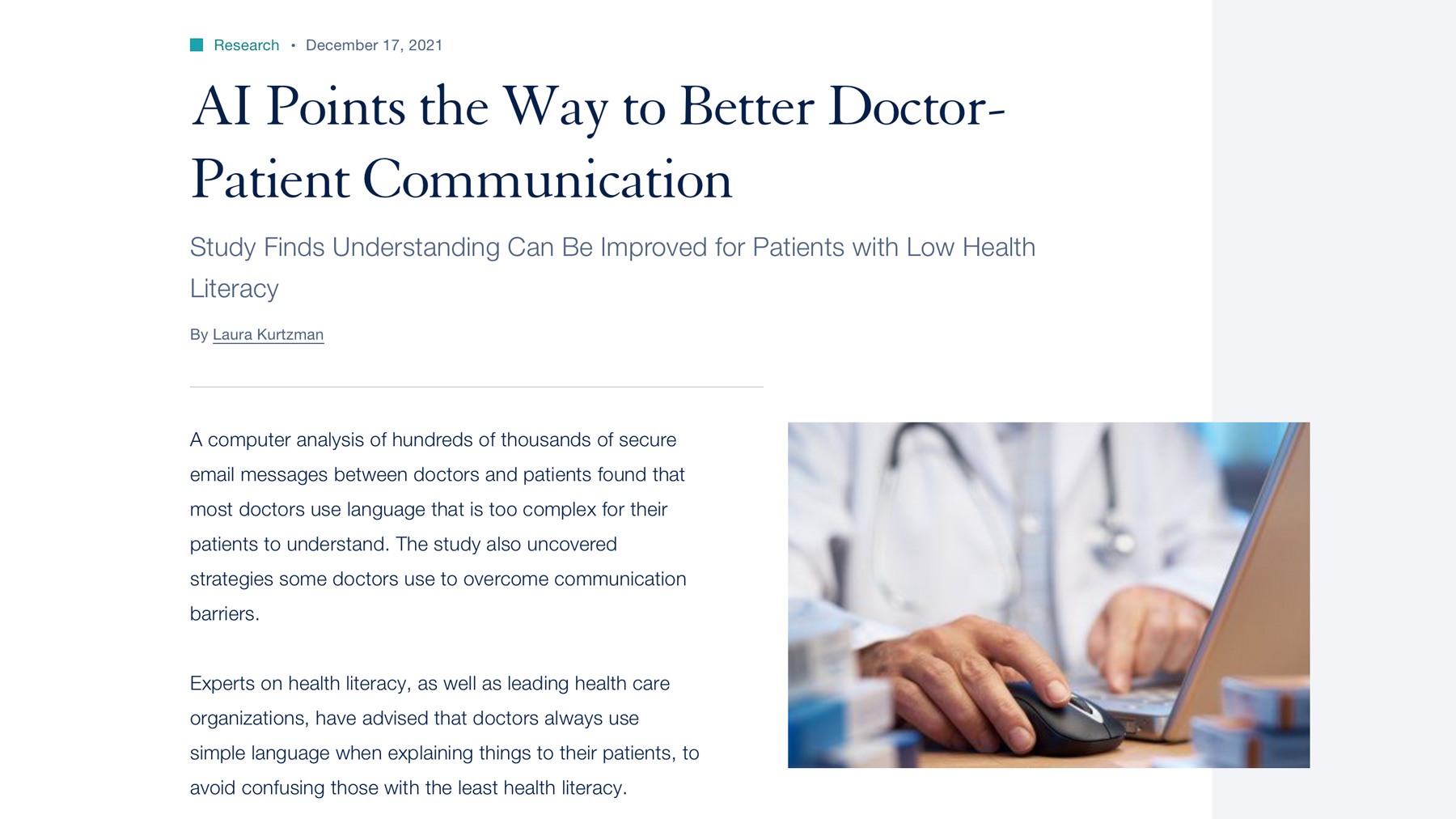site news
Doctors Need To Use 'Plain Language'
Date : December 17, 2021
It took the University of California, San Francisco a sophisticated Artificial Intelligence program to discover what many patients all over the world already know- and have been saying for years- it is sometimes difficult to understand what their doctor is trying to tell them. This can be exacerbated in the current climate of using telemedicine where possible.



